Atul Singh: Hunger Now Strikes Gaza and Big Crisis Brews in Israel. So Glenn, you have served in the Middle East. You began your career, I believe, in Lebanon.
Glenn Carle: If I did, I was not in Lebanon, but I was the Lebanon desk officer. That was my first assignment. That’s true, over 40 years ago.
Atul Singh: So you’ve been dealing with the Israelis for a while. So educate us. Paint us a picture.
Glenn Carle: Well, we had some news today that is sort of representative of how the Israelis at present are, and for quite some time, have approached the issue of what to do about hostility from Muslims and from the Palestinians, from Gazans in particular, which is that the Israelis announced they had killed Muhammad Sinwar, who was the leader of Hamas in Gaza. And so this is a triumph, but I can tell you, and all of you will know if you have followed the news, that America, during the “War on Terror,” became spectacularly good at killing the chief of operations of one terrorist group or another. The life expectancy was short for these individuals, and so each of these strikes was touted as a success.
And in a tactical sense, certainly they might be brilliant operations. They might be successes, because that will disrupt an organization if you kill its leader for a period of time, but it really addresses zero of the structural problems, the fundamental problems that lead to an organization like Hamas existing, or al-Qaeda or any other. So it will divert our attention from the larger issues, which remain unchanged and quite possibly worsened by this kind of operation. So in one human operation there, we may see, I would argue, the fundamental dynamic of tragedy and non-solution of the problems in Gaza, specifically this time.
Hamas is unkillable
So what’s happening? Well, the situation, as you’ll know, is that the United Nations warns that of the two million Gazans, over 500,000 face imminent starvation. Not deprivation, literally starvation. I think 60,000 children are in imminent danger of starvation. There have been no supplies, not a trickle. Zero supplies of any sort, including water, as I am informed, allowed into Gaza by the Israelis. The destruction of Gaza, which is, I’ll approximate — it’s probably 50 kilometers long by 15 kilometers wide, maybe not even that large. Well, here’s a reference point: During World War II, the Allies — essentially the United Kingdom and its dominions, the United States and the Soviet Union — destroyed, literally destroyed, one building in every three that existed in Germany. One-third of all structures were destroyed by the Allies in World War II. Well, in Gaza, the Israelis have destroyed 70% of every structure in Gaza. The two million people have been crowded into something like an area one-tenth the size of Gaza itself, and then shuffled from one part to another as the Israelis decide to bomb different areas. So the situation is unimaginable. But what’s the policy of the Israeli government? No one really knows, because there really is not one, other than to destroy Hamas. Many observers, before the fighting began two years ago now — and I will say I was one of them — said it’s essentially impossible to destroy Hamas through a conventional military approach.
Atul Singh: Gary Grappo, our colleague, also said the same thing, and he served as number two to Tony Blair in the office of the peace quartet. Both of you were of one accord when you said that you simply cannot destroy an ideology.
Glenn Carle: A conventional military really can’t do it unless one commits genocide, and that literally would kill everybody. But then you’d probably so anger people not killed that they would adopt the views of those who had been. It’s not really an appropriate tool. I’m not a pacifist. I’m not opposed to military as—
Atul Singh: It has been done in the past. Look at Native Americans when your forefathers first came (laughs) to the northeast.
Glenn Carle: That’s true. And there were, you know, a few thousand, and it took 300 years of history of terrible things. That is actually literally true, though. So the situation in Gaza is just catastrophic. And Israelis’ policy — they can’t stop the war, because if they stopped fighting, Hamas is still there, and there’s no alternative government. And any Gazan who criticizes Hamas, Hamas kills. Polls show that even before the fighting began, Hamas was not popular. Most Gazans opposed Hamas. The polls show that there’s still anger against it. But what does one do? You can’t do anything if you don’t have a weapon, you aren’t organized and the other side has weapons and organization and will kill you.
So symbolic of all of this is the solution proposed and then denied by the Trump administration. It is what would sound sort of like a lunatic idea, but there are five separate sources from The New York Times and other reports that have corroborated since that the Trump administration was at least, if not is, considering moving one million of the Gazans to Libya. And to convince the Libyan government — such as the Libyan government is, because Libya is a failed, dysfunctional entity, almost not a state, actually — would be that the United States would unfreeze $30 billion of Libyan money that the United States and international community froze when it was overthrowing Muammar Gaddafi.
Atul Singh: That’s not such a bad idea. The Gazans, with their military organization, could take over the entirety of Libya. They could do to Libya what the early immigrants have done to other societies.
Glenn Carle: Well, there is precedent, which the Israelis of all people, the Jews of all people on Earth, should be keenly aware of. In 136 AD, at the end of the Bar Kokhba — I’m probably mispronouncing that — revolt against the Roman Empire by the Jews in Judea and Samaria, the Jewish country homelands, Emperor Hadrian ruthlessly suppressed the revolt, killed hundreds of thousands of people, and then, when he had destroyed all organized resistance, expelled every Jew from Judea and Samaria, and then said, “Enough of the Jews. We’re going to solve this problem once and for all. It’s no longer Judea and Samaria. I now dub this land Palestine.” The Jews have been haunted and the world has been haunted with this policy decision and error for 1,900 years. You don’t change a people’s sense of self from that sort of a policy.
Now, the Trump administration has backed off on this. It’s not quite a strawman, but it is just about inconceivable that this would happen. But it is a sign of the emptiness, the lack of any solution, proposal, policy on how to end the conflict and what to do about Gaza when the fighting stops. There’s no plan. Logistically, were that to happen, it’s just essentially inconceivable. But put that aside. There’s no plan for who would govern. The Israelis have refused to agree to or come up with anything. One talks of a multinational Arab — which means Muslim — force under the umbrella of the United Nations, perhaps, but essentially it means occupying Gaza to administer it, which then would mean that whatever entity is there would have to deal with more than remnants; the continued existence of Hamas, somehow.
At present, Hamas has lost — estimates are about 50% of its manpower, maybe 20,000 out of 40,000. Most of those killed, I think 17,000 have been killed. The estimates are from 8,000 to 17,000 Hamas fighters. Well, 50,000 total Gazans have been killed. That includes the 7,000 to 15,000 Hamas fighters. But nonetheless, it still has thousands of members. It recruits thousands per month, apparently. It is still launching rockets into Israel. It appears to have expanded some of its operations to the West Bank. So it would seem that you can’t kill Hamas, and there’s no replacement even proposed. The solution mulled over by the Trump administration and by the far right of the Israeli political spectrum — which controls, really, the existence and the survival of the Netanyahu government — would like to do what Trump is proposing, but it probably won’t happen.
So we are in a future that doesn’t exist and a present that is unsustainable.
Israel’s internal crisis and fracturing society
Atul Singh: You’ve mentioned the far right. And so let’s talk about the Israeli situation. There is a crisis brewing in Israel. First of all, there is unease over Gaza, and the reason is simple: There are some reservists who are going for their sixth or seventh tour of duty, and there are 60 to 70,000 Haredis, ultra-Orthodox Jews, who have not been summoned to fight. By law, they should be doing the fighting, but politically, because Bibi Netanyahu’s coalition depends on far-right parties — it’s a coalition government, it’s a very fragile government — and it’ll fall because of that, if he summons the ultra-Orthodox to fight.
We’ve had many Israeli sources tell us that if things continue like this, Israel is on the verge of a civil war, because you cannot have the burden of the state on one section of the population and the benefits of the state accruing to another section of the population. And this is causing strains that are increasingly coming to the fore. They cannot be papered over by this appeal to common Jewish identity. There’s also—
Glenn Carle: This is a critical point.
Atul Singh: Yes, and we’ll delve into it.
Glenn Carle: Yeah, I haven’t been to Israel for some time, but all visitors, all observers, comment on something that I did feel, even when I went, which was the rise of the religious right, socially and politically, in Israel, so that the Israel of today is profoundly riven between, to simplify, the secularists and the ultra-Orthodox. And that has undermined the functioning — not just the efficient functioning, but the functioning — of democracy and the stability of Israeli society, independent of, although you can’t separate it really from, the problem with Gaza.
Atul Singh: We’ll get to that in a second. There’s the economic pain that Israel is going through. Remember, Israel is a small country. It doesn’t have a large population, and it is the reservists who are the productive elements of the population. The ultra-Orthodox actually live off subsidies, produce babies and read the Torah. They are actually a burden to Israeli society and the Israeli economy, and so they are not necessarily producing great products and services that power the Israeli economy. So economically, the continuation of the war and the reservists going to battle instead of working in their offices or factories is causing massive strain to the Israeli economy.
And let’s go back to the strains within the society and the polity, because the strains in the polity — Bibi Netanyahu fired the chief of Shin Bet. The chief of Shin Bet, Ronen Bar, is widely regarded as a top professional. He’s seen as an outstanding officer, he has acquitted himself very well. His former subordinates say he’s extremely professional, and he has accused Bibi Netanyahu of dodging his own responsibility, trying to get Shin Bet to do Bibi’s political dirty work, and firing Ronen to cover up allegations of corruption within the prime minister’s office.
Now, the Supreme Court — yes, of course, it skews left, yes, of course, you could argue that they have always opposed the religious right — but the Supreme Court is the last check on Bibi Netanyahu, because in a parliamentary system, Bibi can do anything were it not for the Supreme Court. And the Supreme Court said, “Hang on a minute. You simply can’t fire Ronen Bar.” And then it prohibited Bibi Netanyahu from firing the new intelligence chief. But he went ahead and ignored the judgment and did so.
And so what we are coming to now within Israel is a political crisis — not just a social crisis, not just an economic crisis, but a political crisis and a constitutional crisis. So the strains are not just there within Gaza. The strains have come home to roost within Israel as well, and we are seeing a major crisis. And this is not to mention the complete evaporation of support for Israel in European capitals, and the fact that the UK has suspended a trade deal with Israel. Canada and France have come out together with the UK to condemn Israeli actions as disproportionate. We have the European Commission saying the same.
And at the end of the day, Israel is a small, export-oriented economy, and Israel cannot afford the loss of public support, particularly in Western capitals, because it has already lost the Muslim world. Yes, it has good relations with the Gulf countries, where the sheikhs are very much in favor of Israel and they don’t care about Palestinians. But if you look at Pakistan, which, of course, is a dysfunctional state, there is absolute, searing hatred for Israel. Iran, which is messianic against Israel. Malaysia, Turkey — we could go on. And Turkey, in fact, is now arguably the big threat to Israel, because now the Turkish intelligence service MIT — not the MIT in Glenn’s ancestral town, but the secret service Glenn probably knows well — MIT is now pulling strings in Syria, and Mossad is making its counter moves on the chessboard against MIT. So we are seeing an increase in the temperature in the region, and the Middle East is increasingly like a pressure cooker.
And the Gaza situation is also putting pressure on Arab leaders, because there has always been a gulf between the Arab palace and the Arab street. And that is widening because the Arab street is very much in favor of Gaza, and the Arab palace wants to do deals with Israel and just move on. And so there are wheels within wheels, and the situation is going from bad to worse.
Existential risks and the road ahead
Glenn Carle: Yeah, I would agree that the dissatisfaction and hostility towards Israel from other countries — specifically those who have hitherto been allies and supporters — is real. But I’m less concerned with that — I think that will change if the policies change — than I am with the increasing fissures, fractures in Israeli society rendering government impossible, and the lack of a way forward to resolve the Gaza war in some way which wouldn’t bring down the Israeli government. There seems to be no way to have the pieces add up to four or whatever solves the equation.
I do think, similarly to the US experience in Afghanistan, say — I always argued that the “damage” to the US would not be particularly lasting from leaving. Whether one should have left or not is an important issue but a separate one. I thought that that was the right decision, but that’s actually irrelevant. But the supposed damage and lost trust and so on, all these things pass pretty quickly if the policies change, and other countries have interests in dealing with a gained state. But the fractures in Israel are approaching existential, it appears.
Atul Singh: Yeah, and at the root of it is really yet another polarized society, where people have very different visions of the future. And the risk to Israel is if the Haredis, if the ultra-Orthodox, keep increasing in number, and they keep taking disproportionate benefits and keep putting the burden on the more talented, entrepreneurial secular Jews who serve in the military, the intelligence, the diplomacy, then Israel could start seeing a talent and capital flight. And that is a big risk.
Glenn Carle: Well, it’s a religious war within Judaism, it’s just as Europe destroyed itself for hundreds of years in its religious wars, and Muslims and Christians have been at each other’s throats for a long time, and the Jews are now coming to be almost at each other’s throats in Israel.
Atul Singh: There’s a caveat. It’s not so much religious wars as in, it’s not the Protestants and Catholics. It’s not like the jihad/crusade versus Muslims and Christians. This is a battle between the secular and the religious Jews. So, slightly different.
Glenn Carle: Yeah, well, yes. But religion is half of the equation. It shapes the outcome here, and religion is fundamental and part in it.
Atul Singh: On that note, thank you very much. And before everyone goes, we will take one comment: that Hamas reminds Peter Isackson of Osama bin Laden, who was betting long-term on the destruction of Western power by making it focus on terrorism. And his point is that Hamas are perhaps betting on the long term by protracting this conflict and destroying the legitimacy of Israel and weakening its power and weakening Western powers.
Glenn Carle: Yeah.
Atul Singh: Fair point, Peter. I think that’s all we have time for. Thank you very much for watching. Do subscribe to our YouTube channel and do sign up for our newsletter. Thank you. Bye.
Glenn Carle: Shalom.
[Lee Thompson-Kolar edited this piece.]
The views expressed in this article/video are the author’s own and do not necessarily reflect Fair Observer’s editorial policy.











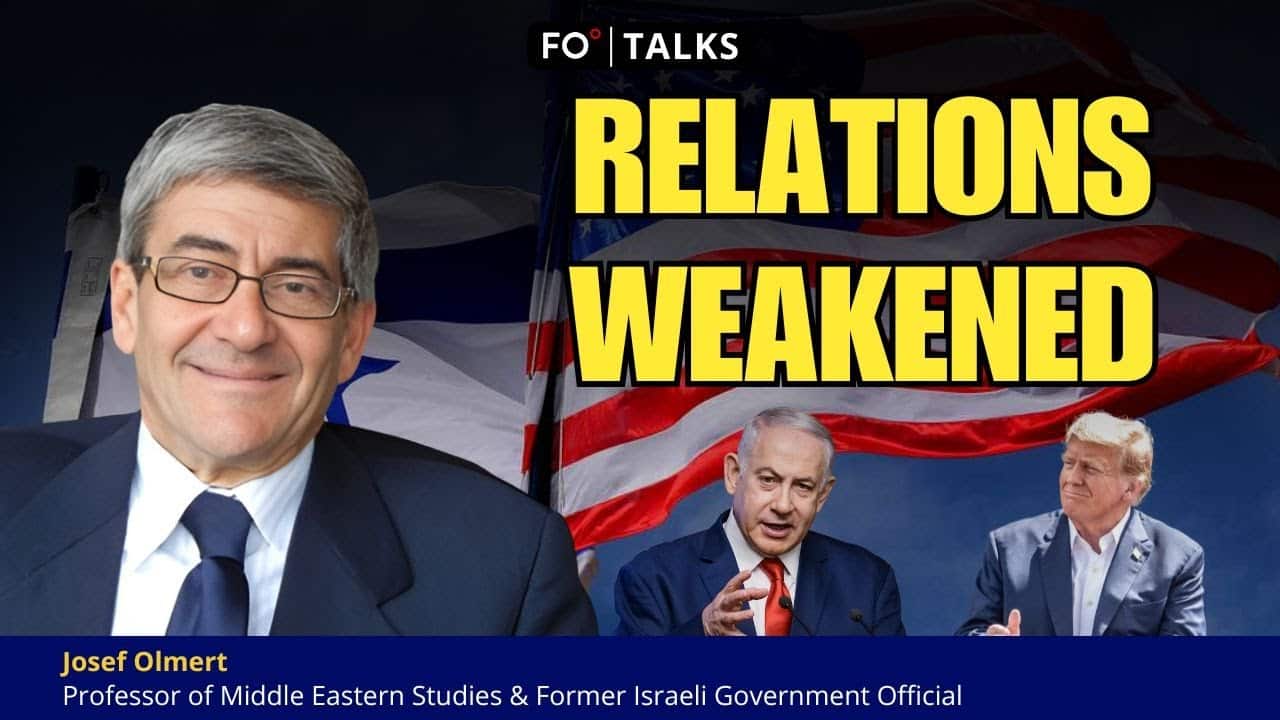



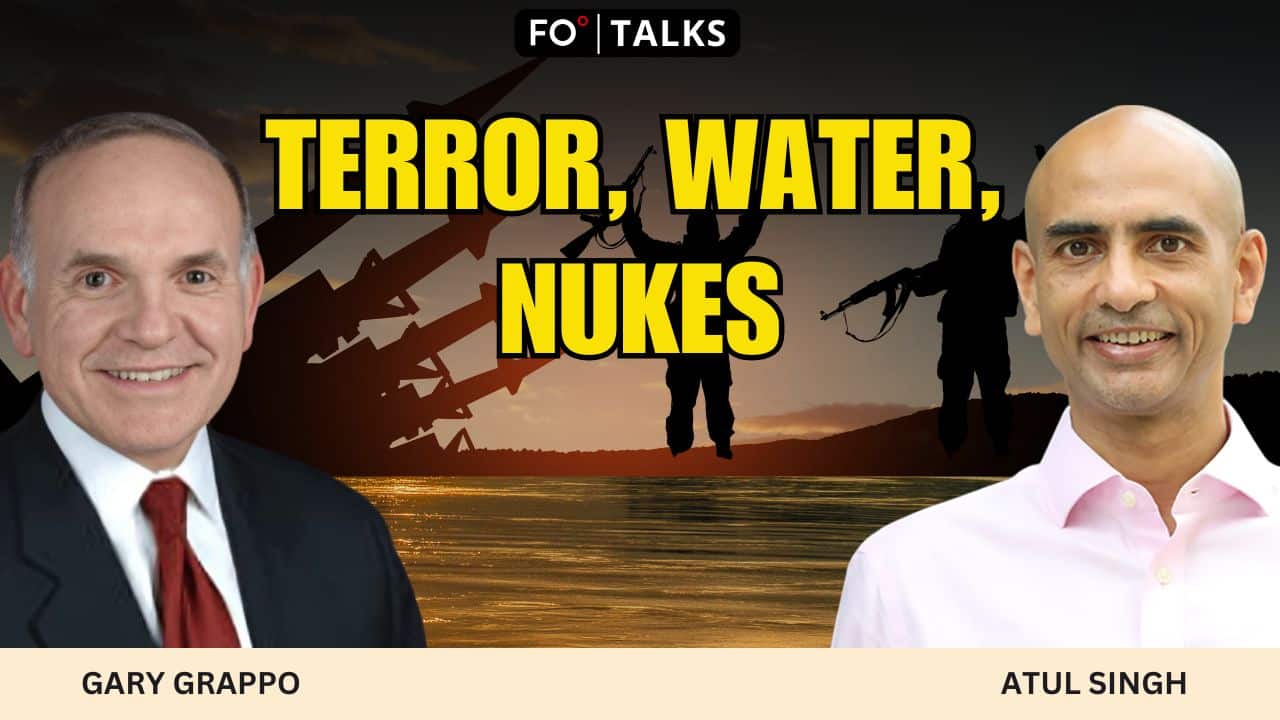



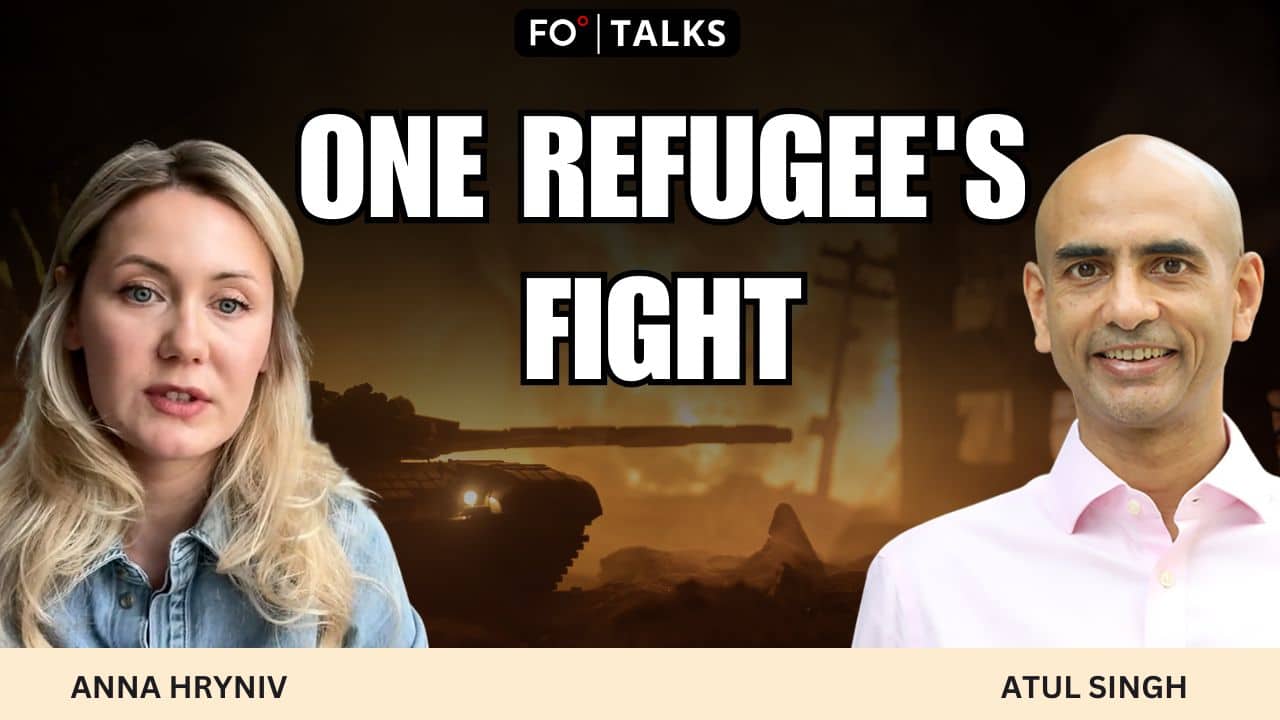

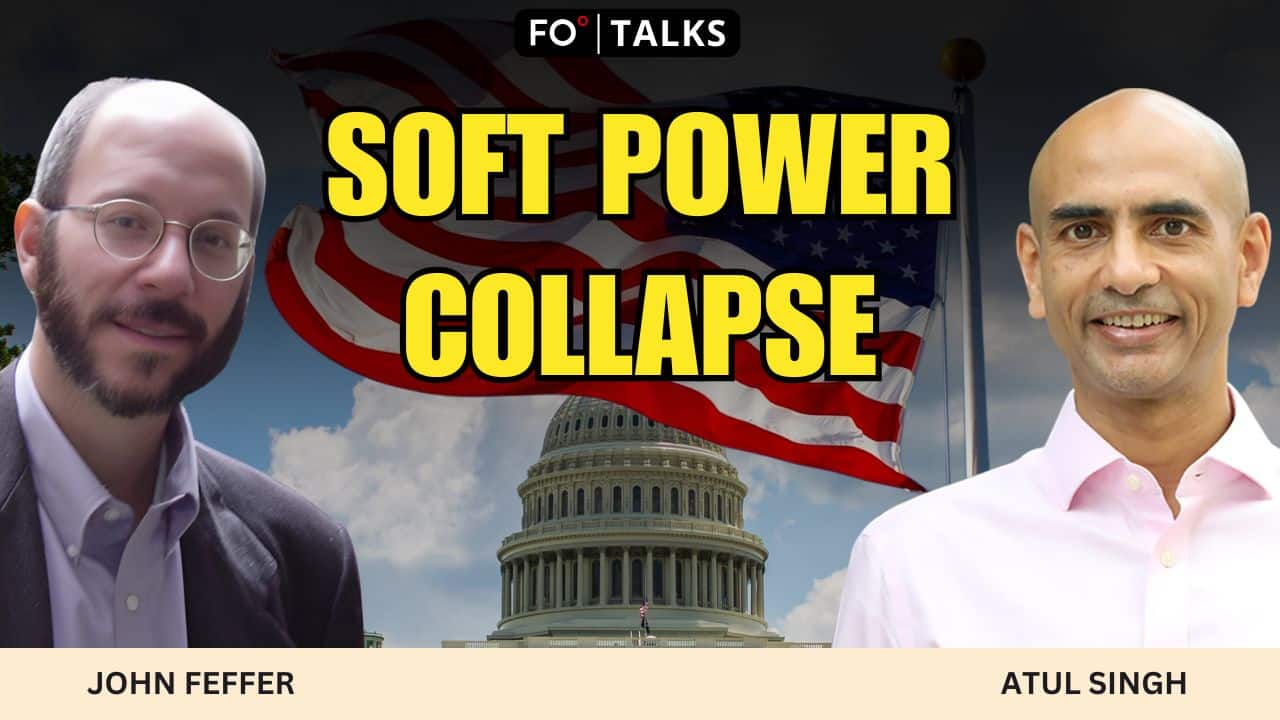

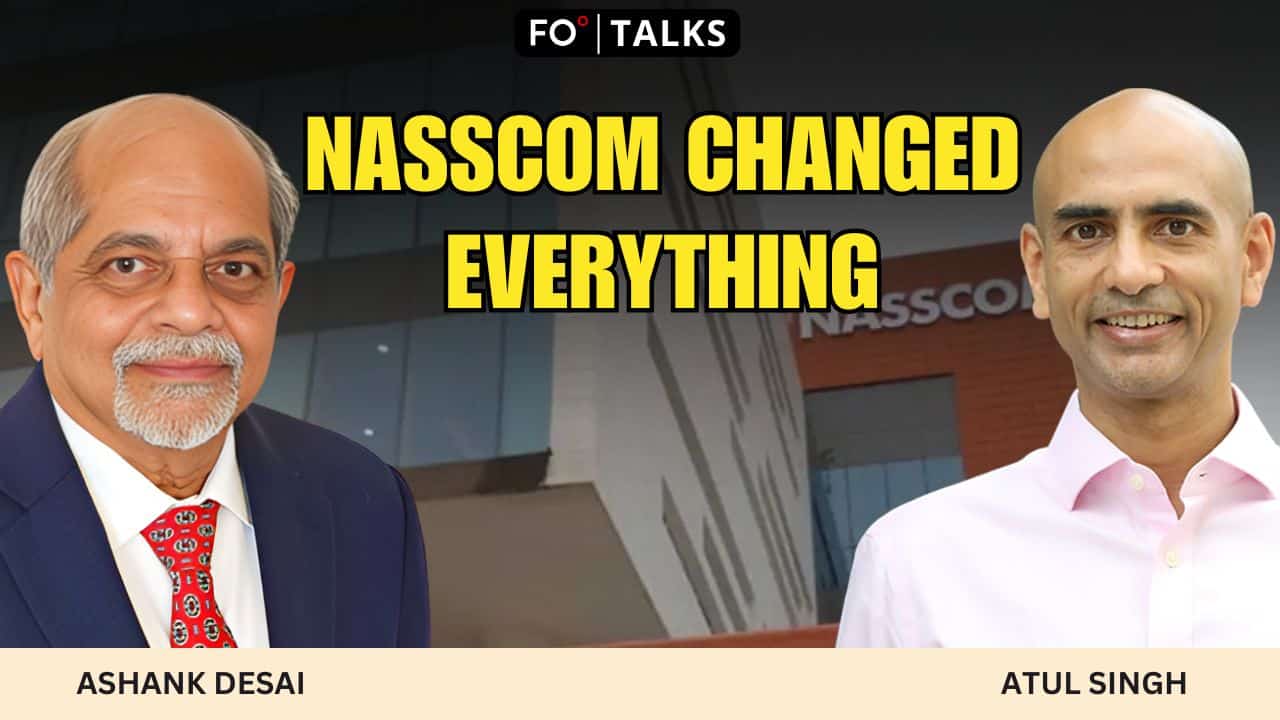














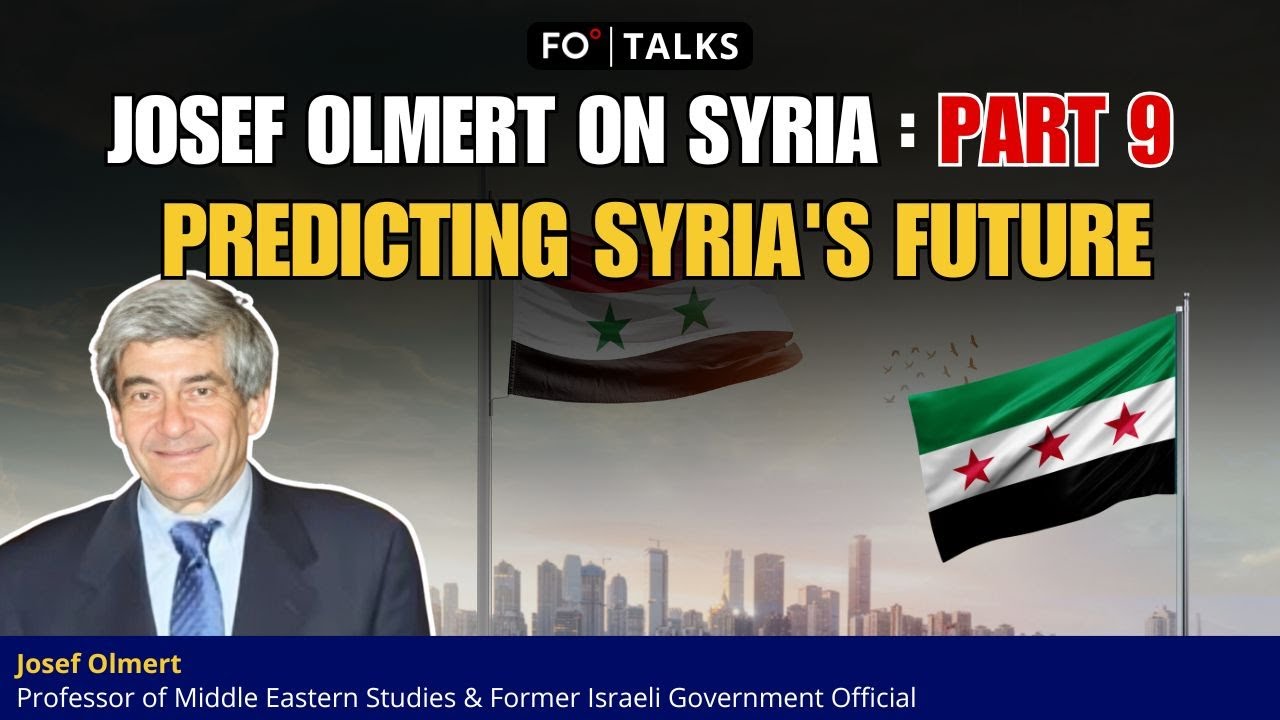

Comment